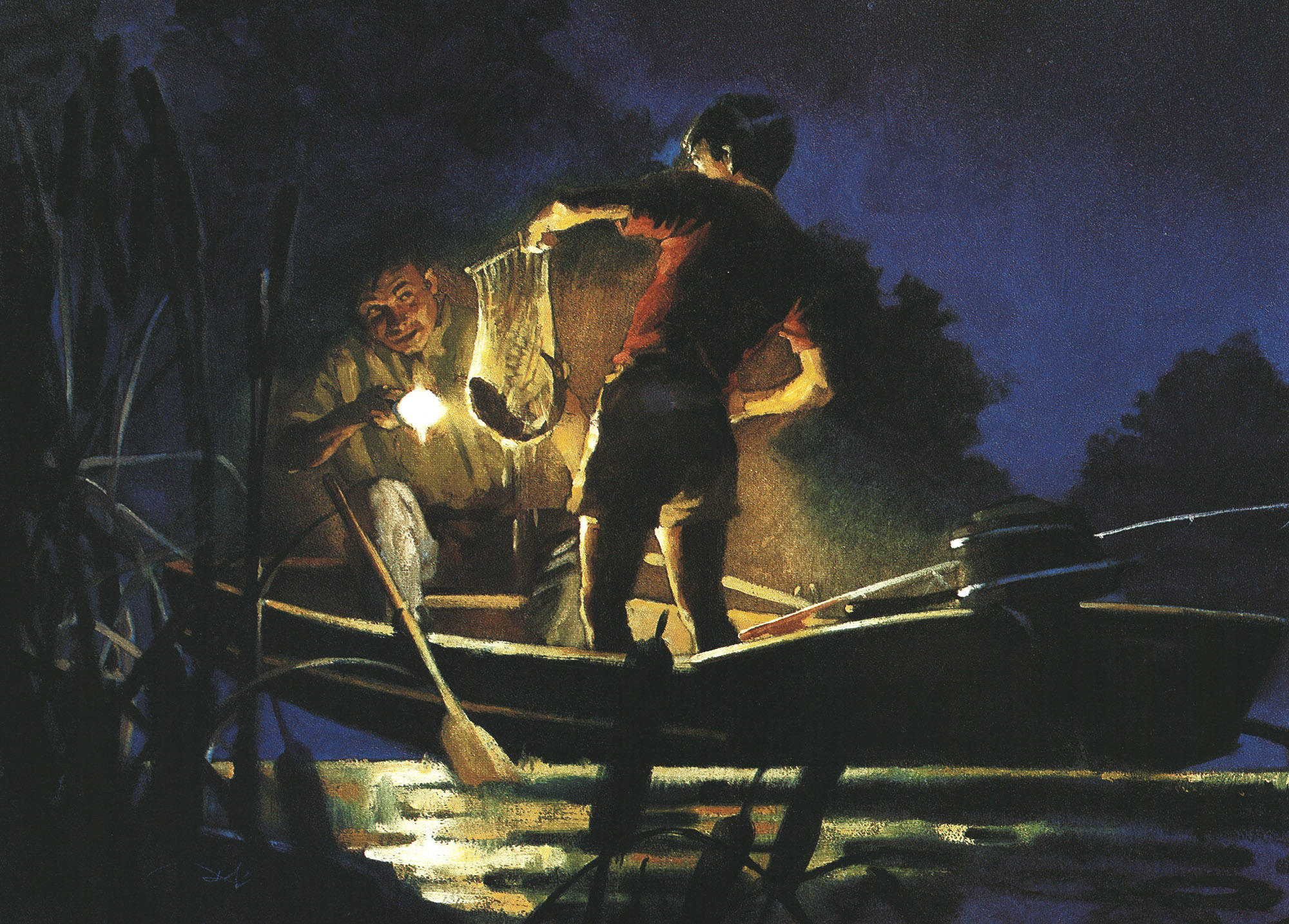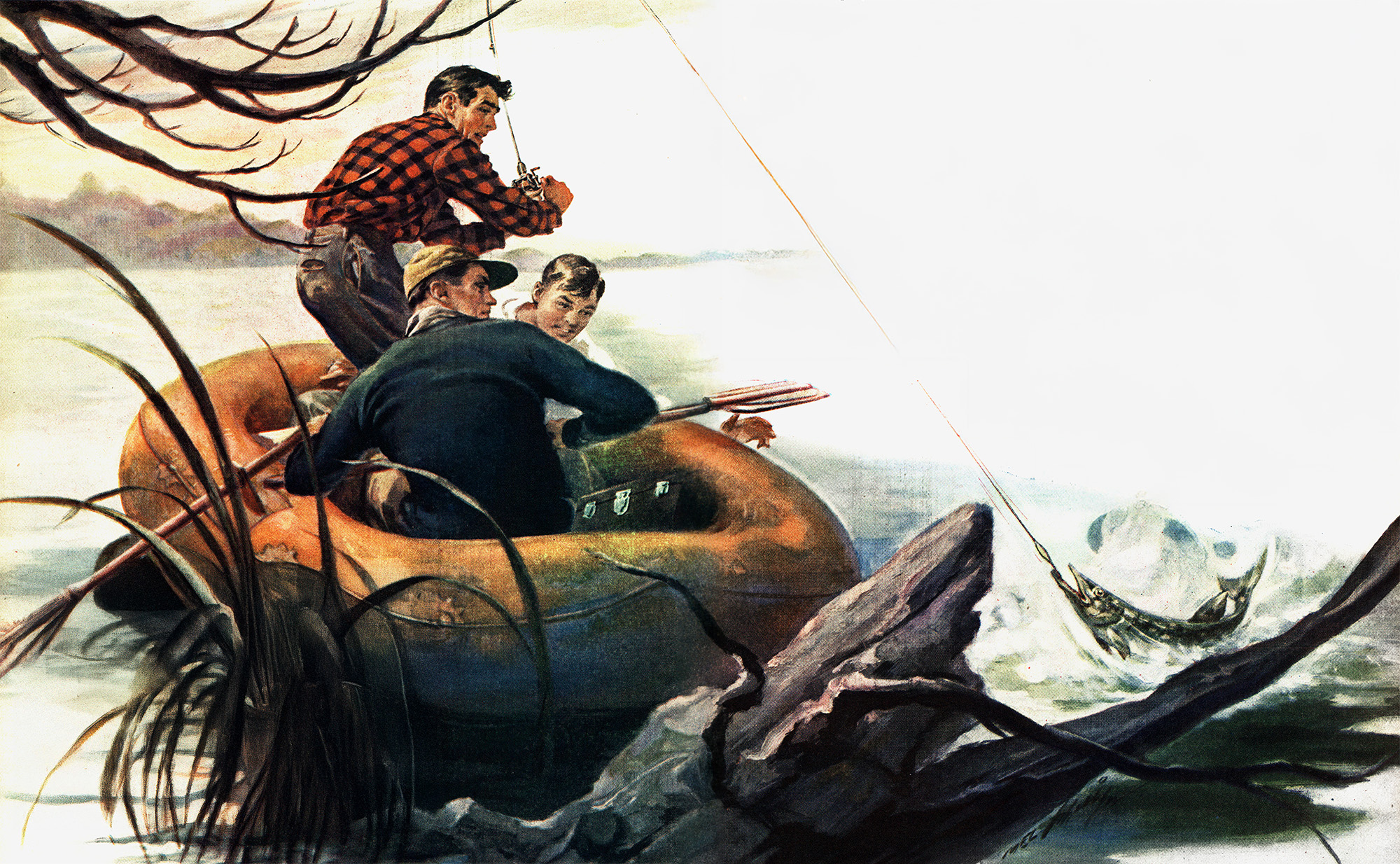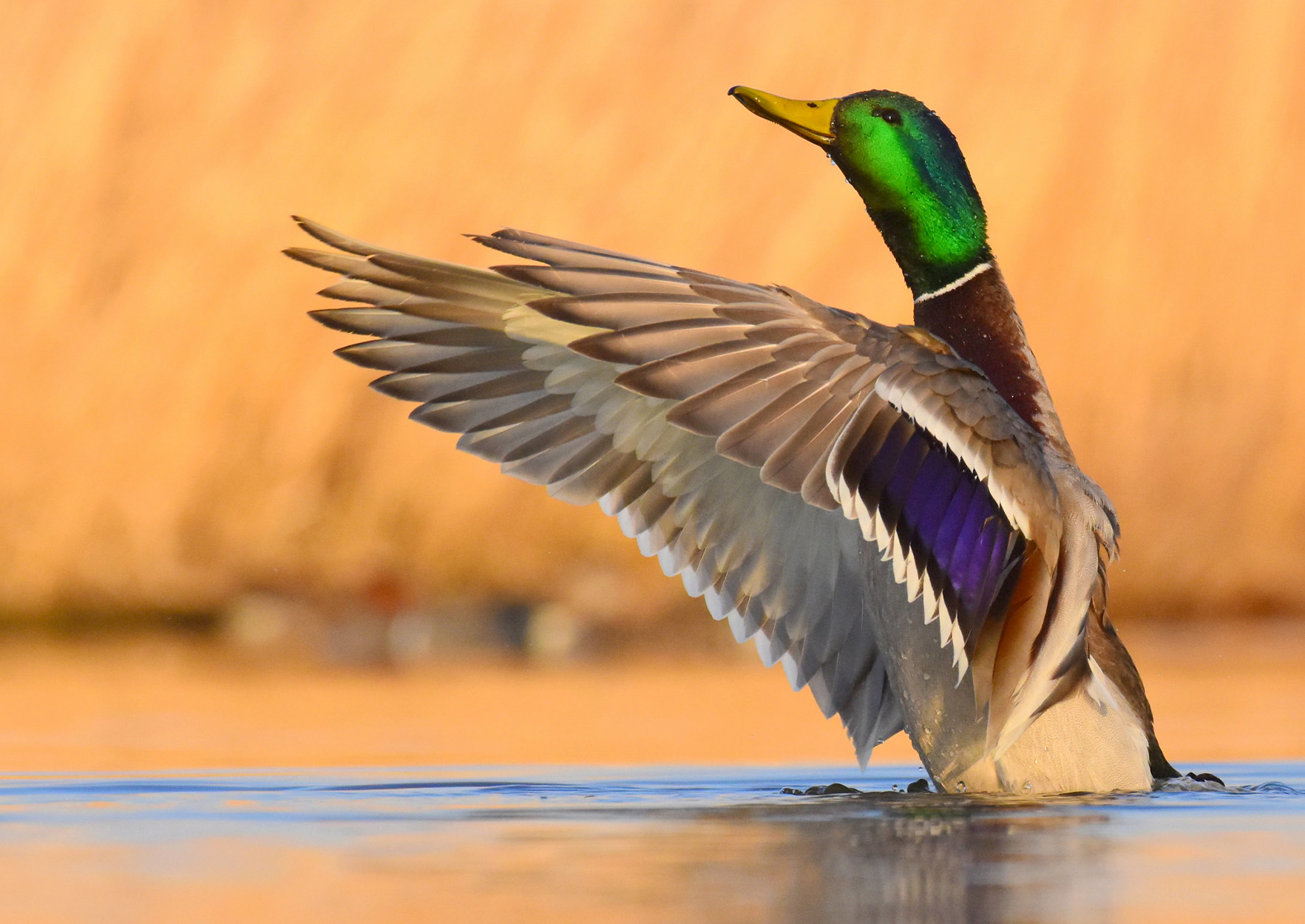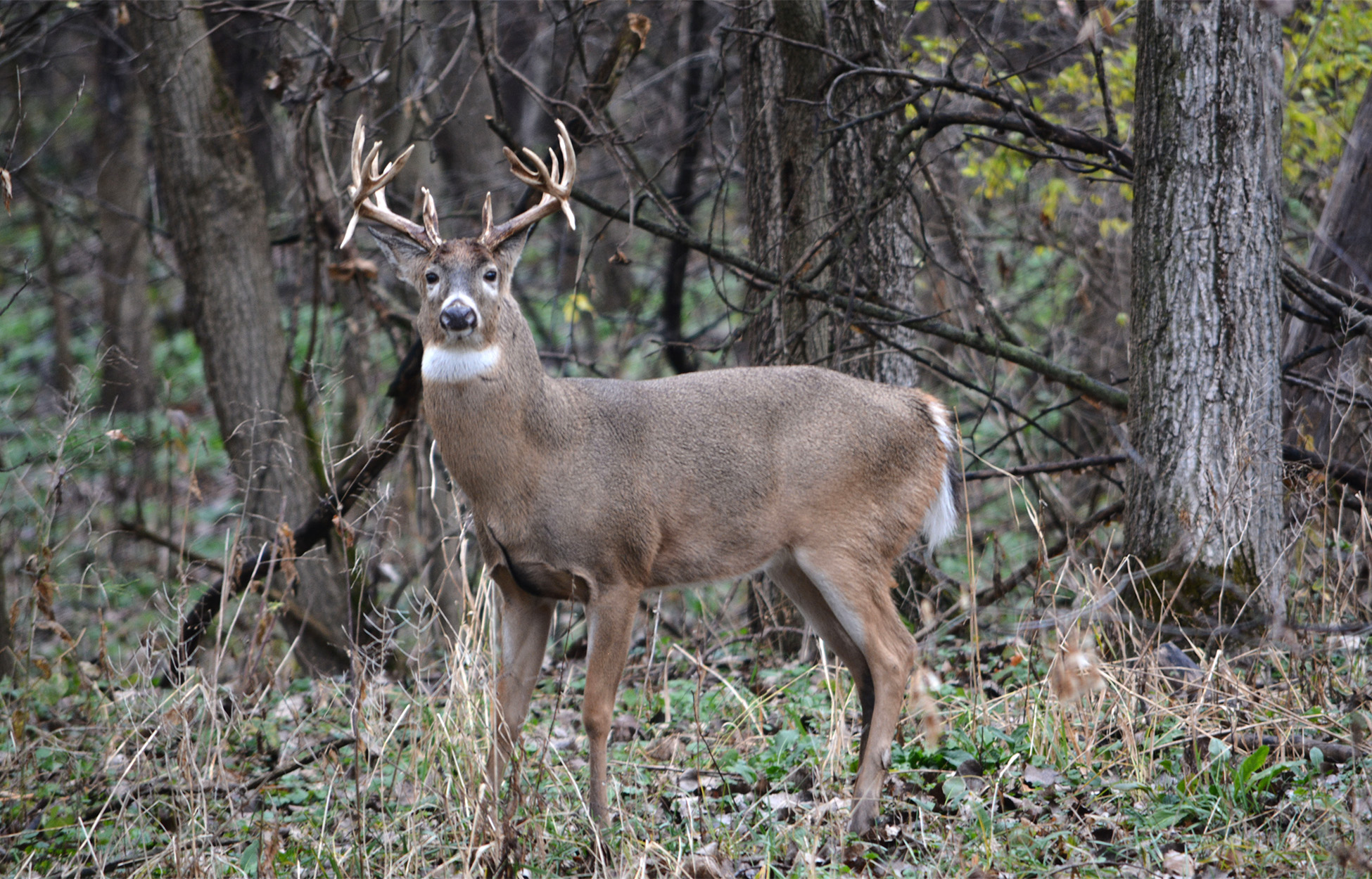Nights Were the Only Time My Dad Had to Himself. He Took Me Fishing Anyway

This story, “Nights of Passage,” appeared in the July 1993 issue of Outdoor Life.
During the summer nights of my childhood, the largemouth bass that had been driven into hiding all day were on patrol and hungry. If you stood on the shore in the night and listened beyond the racket of belching frogs and chirping tree insects you could sometimes hear the bass feeding.
Explosions. Small creatures were dying out there.
My father was a solitary angler. He had no tolerance for companions who talked when they should have been fishing, who clattered gear in the bottom of the boat, who made sloppy, ill-planned casts. In a land of trout streams and lakes filled with northern pike and walleyes, he was an anomaly, a bass fisherman. More: He was a nightfisherman.
In those days our portion of the country, the northwestern quarter of Michigan’s Lower Peninsula, was not recognized as bass territory. Walleye fishermen on slow days sometimes trolled crankbaits along the gravel bars and caught smallmouths, but largemouth bass almost never attracted attention. They were considered an underclass, ranked below smallmouths, which were ranked below walleyes, which in turn were ranked below the brown trout and brook trout of the dry-fly streams.
In short, largemouths were considered crude. Southerners called them hogs and bucketmouths and regarded them with reverence, but in the north, in the warm water of summer, many anglers believed they grew stunted and feeble-minded. They were treated little better than bloated, slightly glorified panfish.
My father knew better. He had begun fishing the hidden lakes in the quiet corners of our county years before I was born, when he came home from the Army with a serious need to get out on the water and stay there. He had worked his way through two or three dozen lakes and ponds, learning them the way a scholar learns obsolete languages, and when he found the lake that suited him best he bought a piece of its shoreline and built a home on it. Then he married, began raising children, and devoted summer nights to the pursuit of largemouth bass.
That summer I became a demon of single-mindedness. Because I was too young to operate the outboard motor myself, I spent the days casting from our dock, waiting for my father to come home from work. At night I hounded him mercilessly.
The summer after I turned 10, for reasons too distant and mysterious to uncover, I was struck with a passion for fishing so powerful it left room for almost nothing else in my life. I could think of little else, could imagine no sensation to equal the heft of a spinning rod attached to a large, violently bucking fish. That summer I became a demon of single-mindedness. Because I was too young to operate the outboard motor myself, I spent the days casting from our dock, waiting for my father to come home from work. At night I hounded him mercilessly.
He was often impatient with my enthusiasm, but he tolerated me in much the way a mature setter tolerates a pup new to the household. And I was a very energetic pup, overflowing with the joy of new life, willing to throw all thought and prudence aside for the pleasure of a single, exquisite moment of fishing. Whenever I was not allowed to join him — very late at night or if he was fishing with my uncles and there was no room in the boat — I pouted and grew petulant. But the injustice was instantly forgiven the next time he looked up at me and said, “Want to do some casting?” In some ways the critics were right.
Those Yankee bass did not grow especially large. Most were two or three pounds, and the six-pounders my father landed once or twice each summer were truly bragging size, or would have been if he had been the sort to brag.
To me it made no difference that our fish could not compare with the hogs of Texas and Florida. It was enough just to be fishing, to be immersed in darkness, surrounded by the rich, textured odors of bottomland mixed with decomposing lake vegetation, the acrid scent of insect repellent rubbed on forehead and arms, listening to the chirruping sounds of night creatures ringing the shore like a crazed, atonal symphony.
New moon was the best time. Total darkness, my father said, would make the bass secure and careless, urge them away from cover, make them more eager to investigate disturbances on the surface. In the ink-black darkness of a new-moon night a big bass would forget hard-won experience and would be as reckless and enthusiastic as a 12-incher. He would at tack anything clumsy enough to fall on the surface of his lake, his domain.
My father’s tackle box was a large metal affair, with fold-out trays divided into compartments lined with sheets of cork. He owned dozens of bass plugs red-and-white Bass Orenos, glass-eyed Pikies, Hula Poppers-but as far as he was concerned there was only one lure for catching bass at night: the Arbogast Jitterbug. He had Jitterbugs in every size and color, but I recall a preference for large ones with a frog finish. Once rigged with Jitterbugs we were set. We could pass an entire night in content ment casting into the darkness and listening to the gurgling music of the retrieve.
I realized that nightfishing was primarily an adult activity, that it involved a world too large and potentially dangerous for children. I only fished at night because my father was there. Without him my natural habitat was shallow water on bright afternoons, water you could see through to the bot tom, bobbers floating at the edge of the drop-off, a rowboat pulled up on shore with the oars trailing in the sand. During the day, I caught bluegills and rock bass and adolescent largemouths possessing the same degree of inexperience and eagerness as I. In the daytime I nev er believed I would catch a large bass. But nightfishing was different. At night bass could be as large and abundant as your imagination allowed. They swam in a world so dark and mysterious, so ripe with potential that I knew they could be caught.
One night we fished a broad, shallow bay far down the shore from our house, a place I had seldom visited in the night. I knew from daytime excursions that lily pads clogged the inner shoreline, and along one outer edge ancient logs and stumps formed a border above a drop off to deep water. We moved by oar, my father in control, and we progressed slowly, one stroke at a time, until we had cast our way around the perimeter of the bay, from the stumps to the lily pads to the relatively open water on the far side. It was there, near the open water, that I was initiated into the adult world of nightfishing.
An extra-sensory awareness some times emerges when you’re fishing at night. I’ve noticed it many times — casting streamers on rivers for trout or trolling the flats by moonlight for walleyes, probing the undercut banks of a small stream for the brown trout that live there — but it has never been so apparent or powerful as that summer night on the lake with my father. I was not a good caster. I was inexperienced and clumsy and too eager, and yet somehow, in the darkness I could exceed my limitations. My casts were long and faultless, landing (I imagined) at the edges of the lily pads, in the pocket between the stumps. It was too dark to see my own hand before my face yet I knew when I had made a good cast. I retrieved the lure in fits and starts, with intervals of rest that lasted as long as I could bear to wait.
I was inexperienced and clumsy and too eager, and yet somehow, in the darkness I could exceed my limitations. My casts were long and faultless, landing (I imagined) at the edges of the lily pads, in the pocket between the stumps.
Looking hard into the darkness I imagined the lure surging, gurgling across the water, leaving a V-wake of ripples pointing to it like directional arrows, so that when a large bass became aware of it, turning in the water to focus on the odd, splashing creature, when the bass drifted up from the bottom and away from the weeds where it had been hovering, waiting … The realization was electric, frightening. My father felt it also. He stopped reeling, perhaps stopped breathing. Even the shore creatures seemed to sense the intention of the bass and quieted in anticipation.
One more twitch, a mere tightening of the line that sent the tiniest ripple of life into the water and suddenly I wanted to yank the lure to safety. I wanted to be securely on shore, in our house, in a room glaring with lamps and a television screen. I did not want the drama, the expectancy. I was afraid of the mo ment when the silence would be shattered by the strike and my father would shout “Whoa!” or “There!” while I shouted in response and reared back on my rod in reflex and fear.
Then, at that very moment, the water blew up.
I struck, reeled madly to be sure there was no slack, then struck again to set the hook, as I had been taught. By its sound, the volume of water displaced, and now the heavy weight against the rod, I knew it was not an ordinary bass. I was aware of my father reeling to pull his lure and line from the water.
“Keep the rod high,” he said.
It ran, surging deep, and I realized I did not want to fight this fish. It was simply too big. Even in the darkness I knew my rod was bent dangerously, warped in violence far in excess of any thing it had ever been subjected to. For a moment I reeled futilely, while line was being pulled out by the fish. Then it slowed and I could feel the line rising and knew the bass was coming to the surface.
“Dad!”
It thrashed the water, not vaulting free because it was too big for gymnastics, but wallowing half-submerged, shaking its head, throwing spray that sounded like flung bucket-water in the darkness. The bass dove and I knew I would lose it. It would wrap around thickets of weeds and break the line.
“Dad! Take the rod! It’s going for the weeds.”
But my father said nothing.
“I don’t want to lose it! You bring it in!”
“You hooked it, you can land it or lose it yourself.”
“Dad!”
“Just keep your rod high, let him fight, let him wear himself out.”
It is strange that I don’t recall other bass caught on those summer nights. I know there were many, because my father still talks about them, but for me the nights have all blended into that one night and all the other fish have been forgotten. There is a photograph enlarged and framed in my parent’s house of my brother and me hoisting the five pound largemouth between us, my brother there because we woke him when we returned with the fish and he insisted on sharing the moment, holding one end of the stringer as I lifted the bass with both arms. I remember the sudden flash of the camera, and the spot of brilliance that blinded me for minutes afterwards, and my mother laughing and saying it was the biggest bass she had ever seen, though I knew even then it wasn’t. I remember too the relief that had flooded over me when the large, black creature in the water was finally swept into my father’s landing net and swung into the boat where it thumped against the aluminum two, three times then was still. And I remember my father switching on the flashlight and shining it on the fish, seeing it spot lighted suddenly, sheening with water, its mouth clamped down even in defeat on the little frog-colored lure.
It was not a trophy bass, by most standards, but when you considered those five pounds in relation to my 75 pounds it took on added significance. My father would have had to catch one weighing nearly 15 pounds to equal the achievement.
“It’s as fat as a piglet,” he had said, but to me it looked bigger yet, fat as a sow. I could not imagine a larger bass living in our lake. To this day I have not caught one that can match it.
Read the full article here









